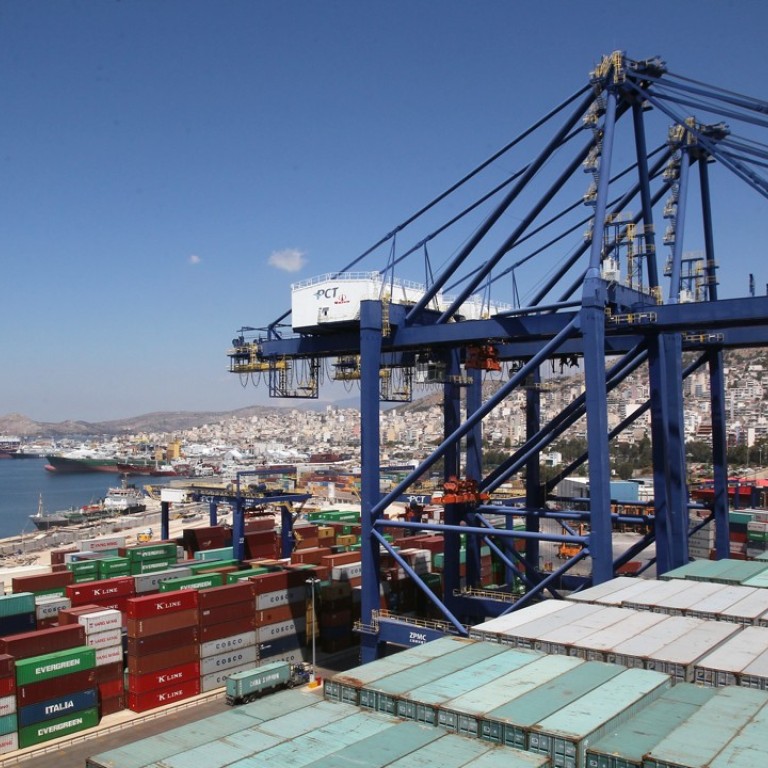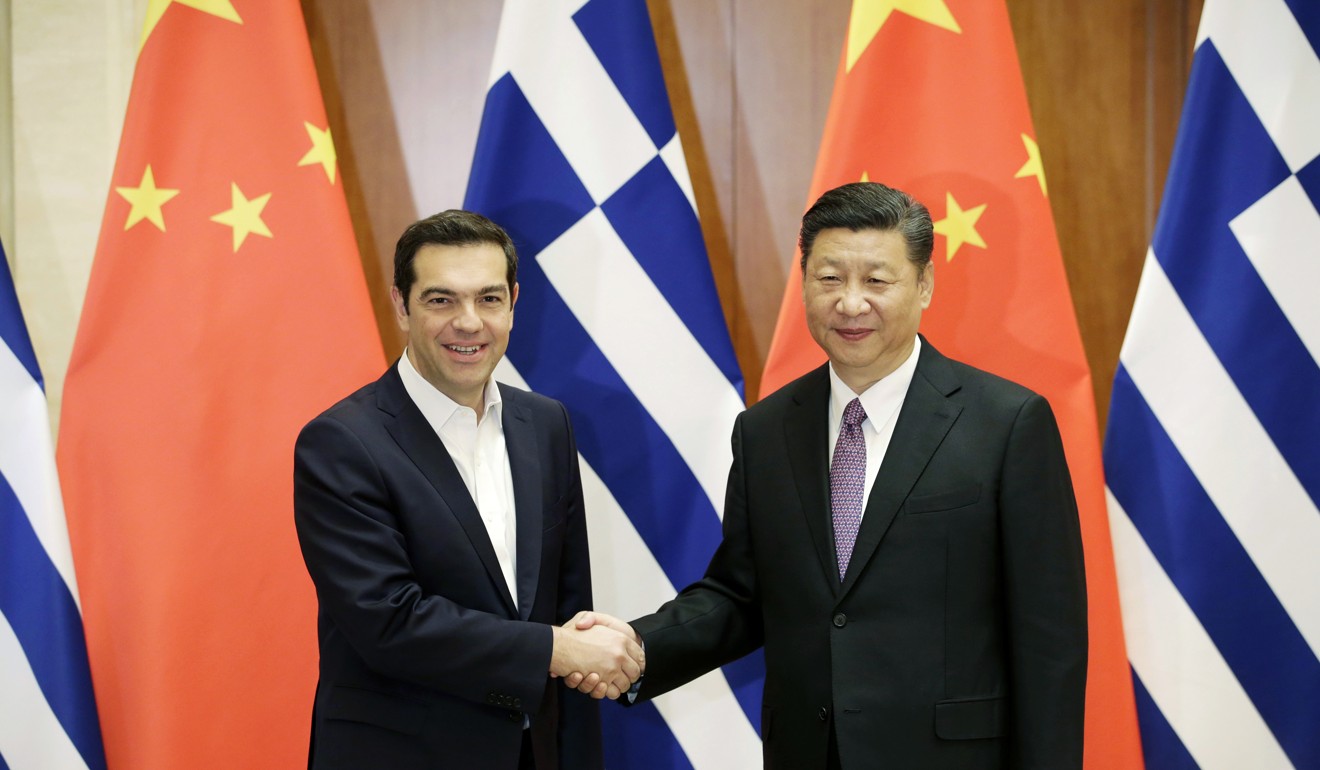
Why Greece is banking on China’s modern-day Silk Road to help its economic recovery
With the Belt and Road Initiative trying to revive the network that once linked the two ancient civilisations
Greece hopes to transform its ancient port of Piraeus into the entry point for an extensive network of roads and railways that will allow China to penetrate into the heart of Europe, its ambassador to Beijing has said.
China’s ambitious push to build a modern-day Silk Road through Asia and Europe has suffered a number of rebuffs in recent weeks after Pakistan, Myanmar and Nepal cancelled put on hold a number of major infrastructure projects funded by Chinese investment.
But Greece, a key point along the route of the ancient Silk Road, will once again serve as the hub connecting Asia, Europe and Africa, according to Leonidas C Rokanas.
“Eventually, Piraeus will become the main entry point for Chinese exports to southern, eastern and central Europe,” Rokanas told the South China Morning Post.
“To use a Chinese metaphor, Piraeus will form the “head of the dragon” of the so-called land-sea express route, leading to the heart of Europe through Greece.”
Last year, the Chinese state-owned firm COSCO Shipping completed the acquisition of a 51 per cent stake in Piraeus Port, one of the biggest in Europe.
For Greece, Rokanas said the deal represents a major boost for its recovery following the debt crisis that started in 2009 and devastated its economy.
The port has opened door for a flurry of Chinese investments totalling US$1.6 billion from companies including mobile giants Huawe and ZTE, the China Machinery Engineering Corporation as well as State Grid, Shenhua Group and Sinovel in the energy sector.
For China, the deal represents an important piece of the jigsaw in its Belt and Road Initiative as some 50 per cent of China’s GDP and around 90 per cent of the EU’s external trade depends on shipping.
“The land-sea express passage connecting southeast and central Europe to China via Piraeus … has further upgraded the significance of Piraeus,” said the Greek envoy.
Greece has already taken concrete steps towards making the Port of Piraeus the entry point for an extended railway network into inland Europe.
During the Belt and Road Forum last May in Beijing, Greek Prime Minister Alexis Tsipras expressed the intent of Greece to upgrade the railway connection between Piraeus and Serbia’s capital Belgrade.
In September, Greece signed an agreement with Bulgaria on the construction of a high-speed railway network, named “Sea2Sea”, that will connect three ports in Greece – Thessaloniki, Kavala, Alexandroupolis – with three Bulgarian ports – Burgas and Varna on the Black Sea and Ruse on the Danube, Europe’s second-longest river.
China is also planning to invest in one of the biggest real estate projects in Europe to transform an abandoned airport complex into one of the region’s biggest coastal resorts.
The €8 billion (US$9.5 billion) plan to transform the Hellenikon airport site was a key element of Greece’s international bailout and has been closely watched by its official creditors and potential investors in the country.
“The Hellenikon project’s contribution to attracting direct foreign investment could be decisive for the overall growth prospects of the country,” said Rokanas, citing a study for the Foundation for Economic and Industrial Research that forecast the project would contribute 2.4 per cent to the country’s GDP until its completion date.
The deal will also help to reduce the country’s unemployment rate, the euro zone’s highest, as it will also create 10,000 new jobs during construction and 75,000 jobs during Hellenikon’s initial operation.

But China’s growing economic footprint in the region has prompted concerns over the East Asian giant’s political leverage in the region.
There are even fears it dividing the EU after Greece, along with other member states, helped water down a statement from the bloc after an international court ruled against China’s claims in the South China Sea. In June Greece also vetoed an EU statement criticising China’s crackdown on human rights activists.
But Rokanas said connectivity projects such as the Belt and Road would have the potential to bring together EU nations rather than to divide them.
“We do not see these developments as antagonistic vis-à-vis other relationships we have; on the contrary they, in fact, complement and empower those relationships, including the triangular relationship we have with the EU and China,” he said.
“Greece, a member of EU, euro zone and Nato, remains an important strategic hub and an effective paragon of peace, security, stability and prosperity in the entire region of southeastern Europe, the Mediterranean and beyond,” he added.

